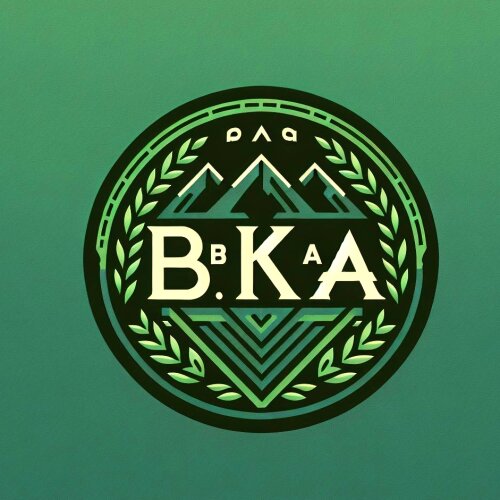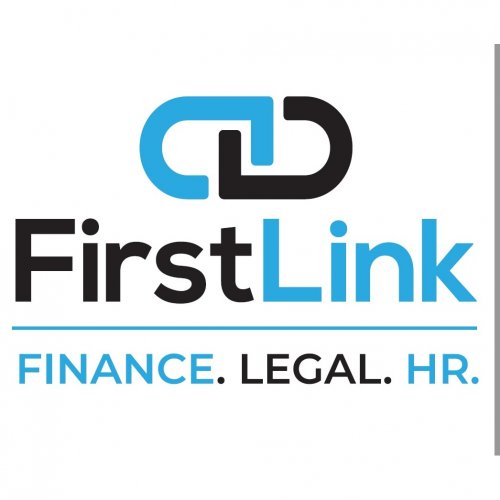Best Debt & Collection Lawyers in Trinidad and Tobago
Share your needs with us, get contacted by law firms.
Free. Takes 2 min.
Or refine your search by selecting a city:
List of the best lawyers in Trinidad and Tobago
About Debt & Collection Law in Trinidad and Tobago
Debt and collection law in Trinidad and Tobago primarily focuses on the legal frameworks governing the collection of debts by creditors, including the processes and limitations involved. This includes regulations to protect both the rights of creditors to collect what is owed to them and the rights of debtors against unfair collection practices. The relevant laws address both personal and corporate debt issues, protecting consumer rights and providing avenues for legal recourse and debt recovery.
Why You May Need a Lawyer
There are several scenarios where seeking legal assistance in debt and collection may be essential. These include:
- Difficulty in understanding the terms and conditions of debt agreements.
- Facing aggressive or abusive debt collection practices.
- Involvement in a bankruptcy proceeding.
- Challenges concerning credit reporting and disputes over debt amounts.
- Negotiations for debt settlements or restructuring.
- Litigation threats or actual lawsuits filed by creditors.
Legal professionals can help navigate these issues, ensuring that your rights are protected and optimal outcomes are achieved.
Local Laws Overview
The legal framework in Trinidad and Tobago that governs debt and collection includes several key statutes and regulations:
- Consumer Protection and Safety Act: This act provides guidelines to protect consumers against unfair trade practices, which indirectly affects debt and credit transactions.
- Bankruptcy and Insolvency Act: Governs the process of insolvency, providing a structured method for handling the debts of individuals and corporations unable to meet their financial obligations.
- Hire-Purchase Act: Regulates agreements for goods purchased through installment payments, which often involve terms relevant to debt and collection.
- Bills of Exchange Act: Pertains to negotiable instruments such as promissory notes and cheques, and conditions under which debt is acknowledged.
These laws collectively provide guidelines on how debts are managed, collected, and, if necessary, legally enforced in Trinidad and Tobago.
Frequently Asked Questions
1. What should I do if I cannot pay my debt?
If you find yourself unable to meet your debt obligations, consider negotiating a new repayment plan with your creditor. Engaging a lawyer can help facilitate these discussions and protect your interests.
2. Are there laws that protect me from harassment by debt collectors?
Yes, there are regulations that protect consumers from abusive debt collection practices. Debt collectors are limited in the methods they can use to contact you and cannot engage in threatening or harassing conduct.
3. Can a creditor seize my property for unpaid debts?
Creditors may seek a court order to seize assets if debts remain unpaid, but this process involves legal proceedings and is governed by specific regulations.
4. What is the statute of limitations for collecting a debt in Trinidad and Tobago?
Generally, the statute of limitations for debt collection is four years for simple contracts. However, this may vary depending on the specific type of debt and the agreement involved.
5. Can my wages be garnished for unpaid debts?
Wage garnishment is possible in Trinidad and Tobago as part of a court judgment, where a portion of your income is legally required to pay a debt.
6. How can I dispute a debt I believe is incorrect?
Dispute the debt in writing with the creditor or collection agency, providing evidence to support your claim. Legal advice can assist in effectively challenging inaccurate debt claims.
7. What happens if I ignore a debt collection notice?
Ignoring a debt collection notice can lead to further legal actions, such as court summonses or judgments. It is advisable to address the issue proactively.
8. How can I improve my credit rating after resolving debts?
To improve your credit rating, consistently pay bills on time, reduce outstanding debt, and ensure accurate reporting of your credit information.
9. What options are available for settling a debt out of court?
You can negotiate a payment plan, agree on a lump sum settlement, or enter into mediation to resolve debt issues without court intervention.
10. Do I need a lawyer to file for bankruptcy?
While it's possible to file for bankruptcy without a lawyer, legal representation is highly recommended to navigate the complex legal processes involved and to ensure that your rights are fully protected.
Additional Resources
For assistance and more detailed information on debt and collection laws, the following resources can be useful:
- Financial Ombudsman Bureau: Offers support for resolving disputes with financial service providers.
- Ministry of Legal Affairs: Provides information on legal statutes and consumer protection laws.
- Trinidad and Tobago Securities and Exchange Commission: Regulates financial and securities markets, offering insights on credit and debt obligations.
Next Steps
If you require legal assistance with a debt and collection matter in Trinidad and Tobago, consider taking the following steps:
- Consult a qualified lawyer specializing in debt and collection to get professional advice tailored to your specific situation.
- Gather all relevant documents, such as contracts, bills, and any correspondence with creditors, to facilitate a comprehensive legal assessment.
- Explore alternative dispute resolution mechanisms, such as mediation, if appropriate for your situation.
- Research online legal resources or contact local authorities for further guidance on proceeding with legal action or defense.
Lawzana helps you find the best lawyers and law firms in Trinidad and Tobago through a curated and pre-screened list of qualified legal professionals. Our platform offers rankings and detailed profiles of attorneys and law firms, allowing you to compare based on practice areas, including Debt & Collection, experience, and client feedback.
Each profile includes a description of the firm's areas of practice, client reviews, team members and partners, year of establishment, spoken languages, office locations, contact information, social media presence, and any published articles or resources. Most firms on our platform speak English and are experienced in both local and international legal matters.
Get a quote from top-rated law firms in Trinidad and Tobago — quickly, securely, and without unnecessary hassle.
Disclaimer:
The information provided on this page is for general informational purposes only and does not constitute legal advice. While we strive to ensure the accuracy and relevance of the content, legal information may change over time, and interpretations of the law can vary. You should always consult with a qualified legal professional for advice specific to your situation.
We disclaim all liability for actions taken or not taken based on the content of this page. If you believe any information is incorrect or outdated, please contact us, and we will review and update it where appropriate.
Browse debt & collection law firms by city in Trinidad and Tobago
Refine your search by selecting a city.










